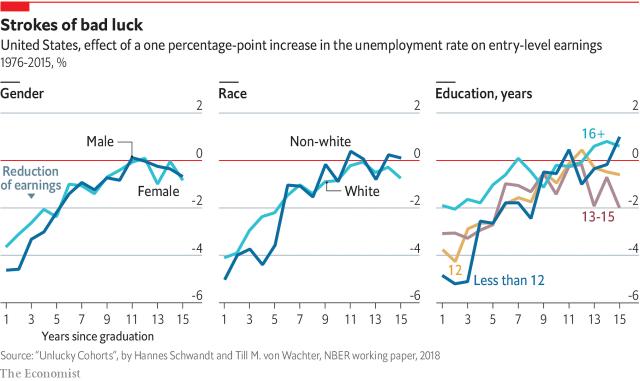Working paper co-authored by Barcelona GSE alum Cristina Bellés-Obrero (Economics ’12, GPEFM ’17)
Barcelona GSE alum Cristina Bellés-Obrero (Economics ’12, GPEFM ’17) has co-authored a new working paper with Antonio Cabrales (UCL), Sergi Jiménez-Martín (UPF and Barcelona GSE) and Judit Vall-Castello (CRES-UPF) on “Mothers’ Care: Reversing Early Childhood Health Shocks through Parental Investments.”
Cristina shares a summary of the paper and some notes about the writing process:
The paper
Health shocks at birth are important in and of themselves. But they also have an impact on outcomes later in life, such as education, productivity or adult health. There is a large literature showing that health shocks at birth lead to important negative outcomes later on. For instance, children born with low birth weight have a higher probability of having adverse health and developmental outcomes in the medium run (Johnson and Schoemi (2011a,b), Case et al. (2005)). However, there is much less research on the potential factors that can compensate those early life shocks. This represents an important element with strong implications for policy makers.
In this paper, jointly with Antonio Cabrales, Sergi Jimenez and Judit Vall, we identify one of these factors. In particular, we want to answer the following question: Are educated parents able to reverse a negative health shock that their children experience at birth?
To answer this question we study the causal effect of a child labor regulation on the short and long-term health of the affected individuals’ descendants. In 1980 a child labor reform took place in Spain, which increased the minimum legal age to work from 14 to 16 years old. A previous paper shows that this reform increased the education of both women and men. At the same time, the reform decreased the fertility and marriage rates of individuals affected, and importantly, it was detrimental for their male children’s health at delivery. At birth, male babies from more educated mothers have worse perinatal health outcomes, such as lower birth weight or low maturity. We estimated that the reform caused 618 more births at less than 37 weeks of gestation, 837 more first multiple births, and 768 extra births with low birth weight. On the other hand, we do not find the same negative impact of the reform over female babies.
Given the size of the effects that we find on birth outcomes and the established links between health at birth and long-term health, we would expect that the deterioration of infant health at birth would persist in the medium and long term unless there is a compensation mechanism. Yet, in the medium run, we find that the effects of the reform on objective health outcomes are insignificant for both males and females. Thus, we can conclude that educated parents can reverse negative shocks at birth.
Our data suggest that the long term reversal is achieved through maternal vigilance. The male children of treated mothers with higher education are perceived as having worse health even at older ages. Their objective health status is, however, indistinguishable from that of other boys. This suggests more concerned mothers. These boys are also more likely to have private health insurance. This latter trait is significant. In Spain private health insurance is purchased in addition to the universal public health coverage. This double coverage allows beneficiaries to avoid the system gatekeeper and, hence, to have quicker access to specialists and additional tests and checkups.
The process
We started this paper in 2017 as a follow-up project. In a previous paper, Elena Del Rey, Sergi Jimenez and Judit Vall analyze the effects of the child labor reform over education and labor market outcomes. They find that the reform increased the educational attainment of both men and women affected by the regulation. In particular, they find that the reform reduced the number of early school leavers (individuals not finishing compulsory education) by 7.6% in the case of men, and by 11% in the case of women. They also find a positive effect in the probability of attaining post-compulsory education. The reform decreased the number of individuals that do not attain any level of post-compulsory education by 3.3% for men and 2.7% for women..
In a different paper, we show that the reform decreased marriage and fertility rates for affected women. At the same time, we also find evidence that the reform is detrimental for the health of the offspring at the moment of delivery. We document three channels contributing to this detrimental effect: the postponement in age of delivery, the increase in single mothers, and the increase in the likelihood that those women engage in unhealthy behaviors such as smoking.
Thus, the reform had a positive effect on the parents, that are now more educated, but a detrimental effect on their children’s health at the moment of delivery. This reform, then, constitute a perfect setting to analyze parent’s education as a possible factor that will allow the reversal of negative health shocks at birth.



 Photo credit:
Photo credit: 

